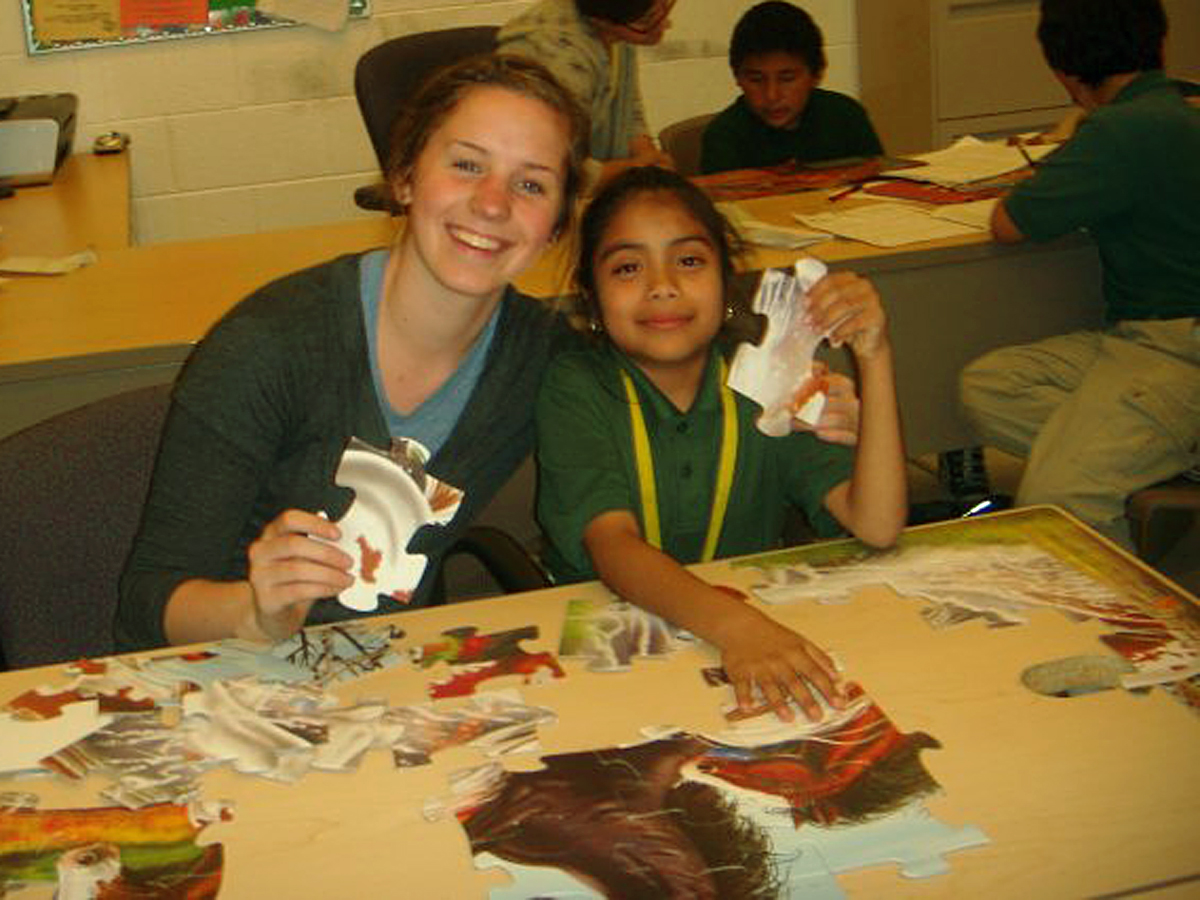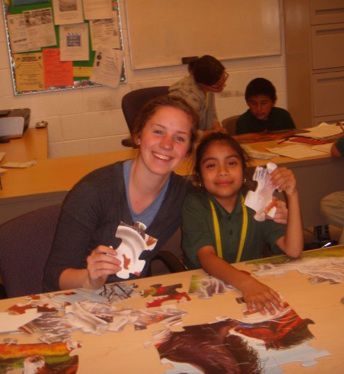Guest Blog and Photos By Keeley Tillotson
My first day volunteering at A Place Called Home, an after-school program in downtown LA, I heard one of the most surprising things that I’ve ever come across in all my years of tutoring. After helping one second grader (her name is Abbi) finish her math homework, I asked what she’d like to do for fun now that her homework was complete. She turned to look at me with her big brown eyes and asked excitedly, “Could we read together?”
Though this may seem an unsurprising or common request, in my experience it is a very rare thing for any student, much less an at-risk or struggling student, to see reading as a reward. Even in my suburban neighborhood, where I have done most of my tutoring, the preferred reward for completed work is a video game or computer time, not more time in front of a book. These relatively priviledged kids have been given more access to books than Abbi. Most even speak and read English more fluently. So why does Abbi possess this love of learning that is lost on so many children? It is because she has been lucky enough to have access to an organization like A Place Called Home.
During the course of our Alternative Spring Break trip, my fellow trip members and myself were able to work with four of these after school community programs: A Place Called Home, Central Community Outreach, Heart of Los Angeles and The Salvation Army. The fine arts manager of HOLA, Melanie Lockert, described the program as, “A means of compensating for an education system that is failing to address the need of these kids.” The floundering LA education system has left the directors of these area programs to search for innovative and cost-effective ways to continue to inspire and encourage these severely disadvantaged and marginalized students in the hopes they can improve their situations. But how does one even start to solve such a complicated issue?
All four of these organizations turned to art, music, and athletics to fill the gaps — programs that our educational system has ruthlessly cut. Musical instruments and instruction, art supplies and teachers, sports fields and courts — all of these things cost money, money that these organizations cannot afford to spend lightly. Yet they continue to spend funds these resources for the children they serve. Why? Because these organizations have recognized something that the school system has refused to. Education is not rote memorization. It cannot be mass-taught or mass-produced. Education should inspire creativity, engage the imagination, and, as Abbi and many of her peers at A Place Like Home have been lucky enough to experience, make learning exciting!
It is because of this creative empowerment that kids like Abbi are so happy to walk over to a book shelf and spend ten minutes picking out the perfect book. As we read one book after another, Abbi contentedly turning the pages, I could not stop smiling. I left the organization for the day feeling hopeful and happy for the future of these kids.
And yet, the more I reflected upon the experience that evening, the more it ultimately left a bitter taste in my mouth. Programs like A Place Called Home should not have to exist to make up for bad education systems. If the United States education system would look at these programs as a clear example of primary educational success instead of as a marginal educational supplement, they would see that it ultimately takes so little to inspire and motivate children, even those with the odds so determinedly stacked against them. Children are children — all it takes is a spark.
Learn more about Ethos’ weeklong series, My Alternative Break.









